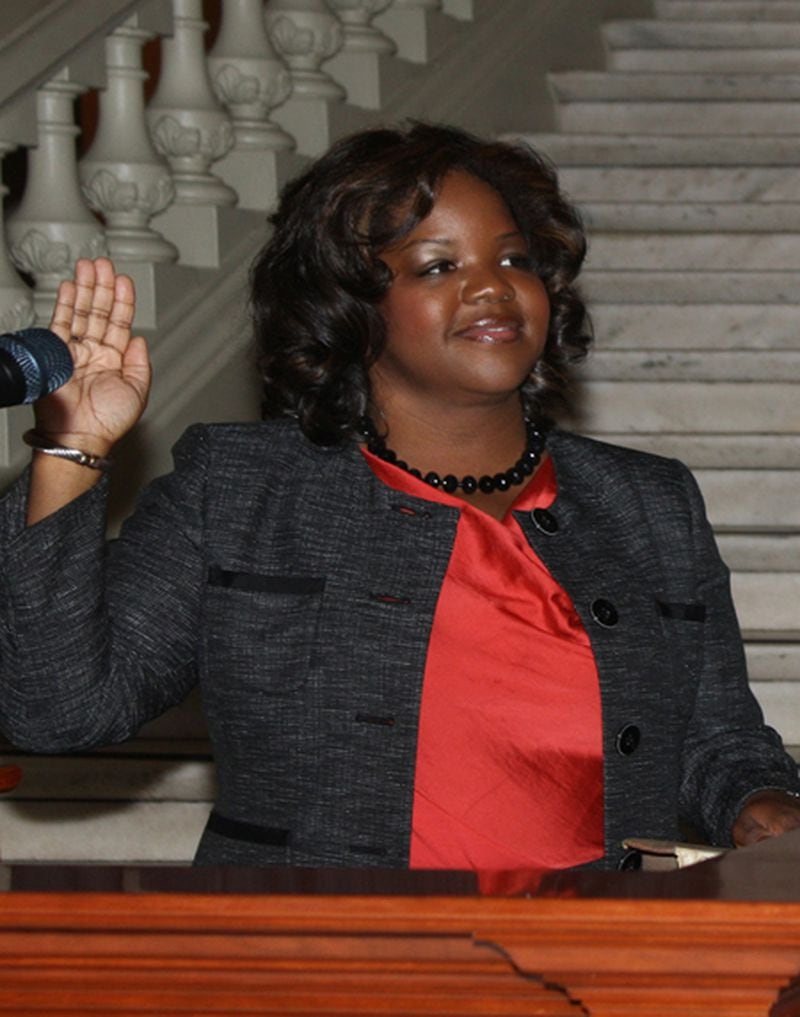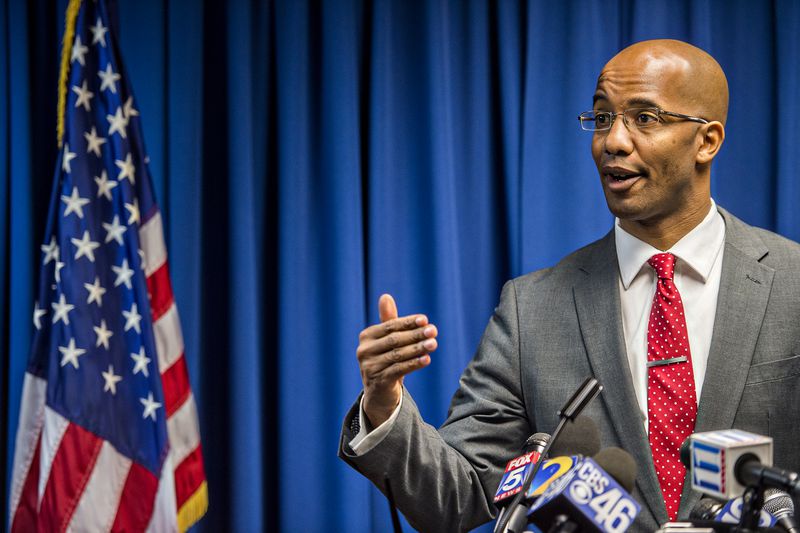Calendar call after calendar call, Superior Court Judge Asha Jackson sees offenders she believes are suffering from some form of mental illness.
"I know it when I see it," the DeKalb County judge said.
Credit: Bill Rankin
Credit: Bill Rankin
Just recently, Jackson said, a defendant openly admitted she was schizophrenic and asked for help.
Such instances have repeatedly affirmed Jackson's belief that DeKalb needs a mental health court to handle some of the criminal justice system's most troubled and fragile offenders. This month, Jackson will begin presiding over the county's new accountability court, which is aimed at treating the mentally ill and those who have both substance abuse and mental health problems.
"I'm really excited about it," said Jackson, who was sworn in as a judge in 2012. "It's a challenging population, but I know we can make a difference.
Georgia's court system has long struggled to find the right way to handle offenders who suffer from mental illness. As recently as four years ago, one of every six inmates in the state prison system were mentally ill.
Thanks largely to Gov. Nathan Deal's criminal justice reform initiatives, Georgia now has more than 125 accountability courts that handle drug addicts, veterans, the mentally ill, drunk drivers and juveniles. They seek to treat an offender's underlying issues instead of locking the person up. Many of these courts, which monitor offenders closely with tough requirements to hold a job, stay in treatment and pass drug tests, have shown remarkable success rates.
DeKalb's new Felony Mental Health Court will soon become one of 25 accountability courts across the state that treat the mentally ill. Its financing comes from a $119,398 grant from the state Criminal Justice Coordinating Committee and $11,940 from the DeKalb District Attorney's Office. Another $28,000 grant from the coordinating committee will be used to help offenders find housing, transportation and the medications they need.
"There tends to be a revolving door in the criminal justice system for individuals who suffer from untreated or unmanaged mental health issues," DeKalb District Attorney Robert James said. "This court encompasses accountability and assistance to break recidivism among this population."
Credit: Bill Rankin
Credit: Bill Rankin
The new court will start slowly, initially accepting 15 offenders and then build from there, Jackson said. And it will only accept those offenders who seek help.
"They have to acknowledge they need help and to ask for it, because we can't force medications on them," Jackson said. "We are starting off slowly because we want to do this well. We want to make sure these people don't return to the criminal justice system."
About the Author








